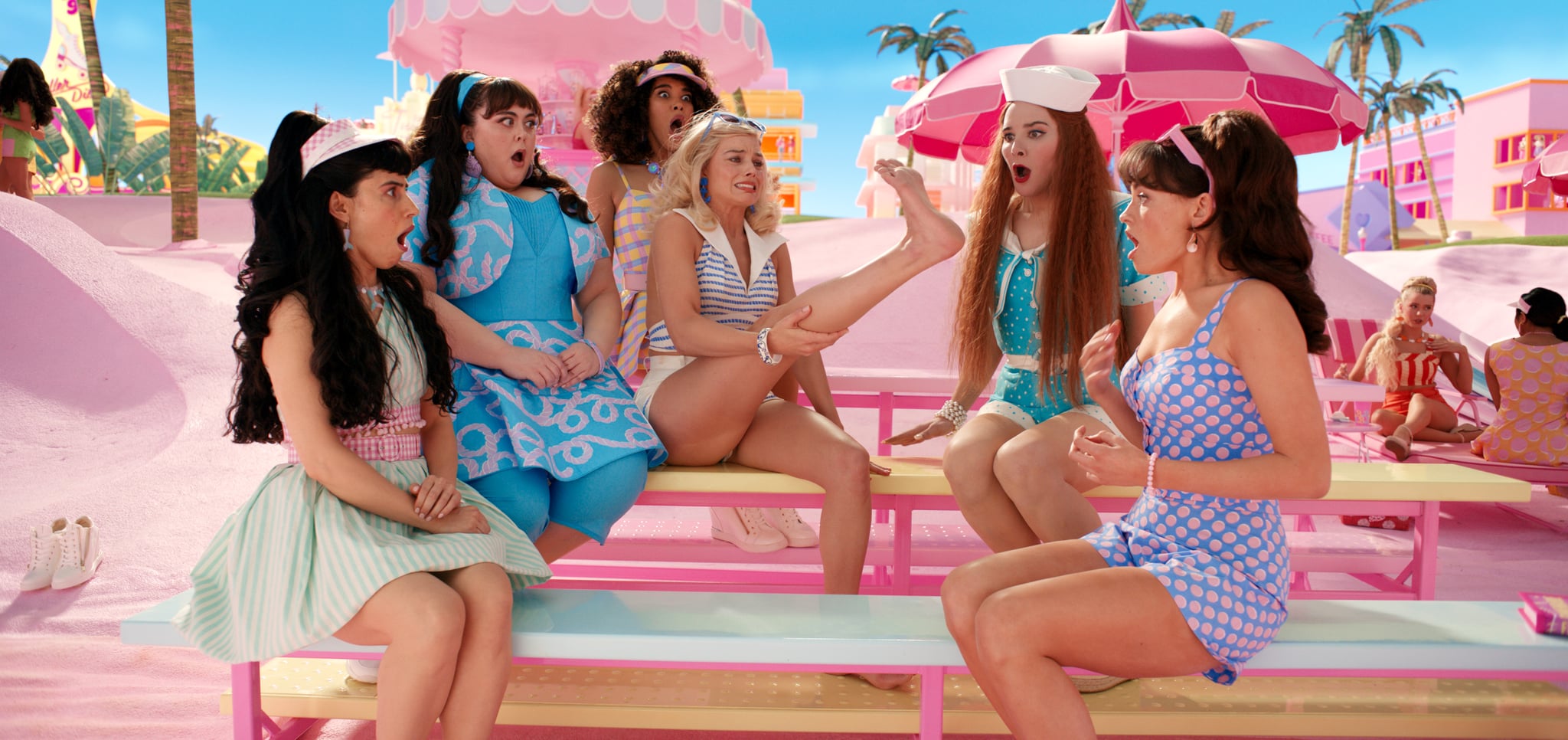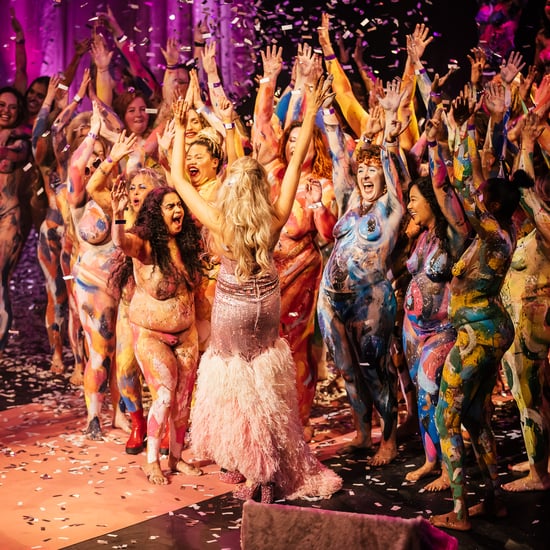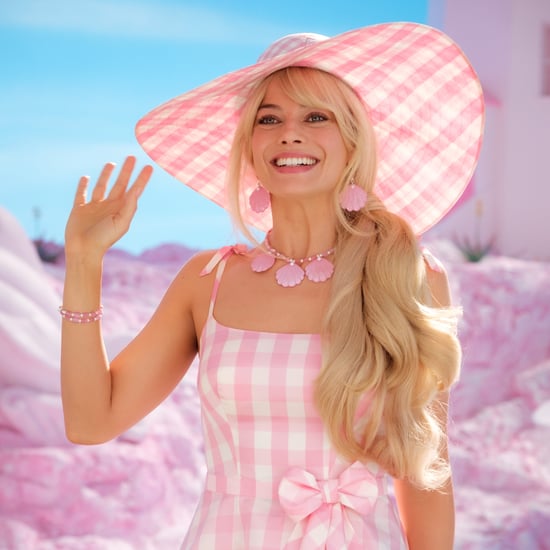There's a Mixed Reaction to the Cellulite Jokes in "Barbie"
The Cellulite Scenes in "Barbie" Are Getting Mixed Reactions; Here's Why
Watch out! This post contains spoilers.

I remember being about 7 years old, watching my paternal grandmother get dressed, when I noticed that her thighs were different, bumpy, unlike my mum's legs and certainly nothing like the legs on all of my dolls, including Barbie.
As I hit early adolescence, I started getting teased for my similarly shaped thighs. I don't remember my peers calling out my cellulite specifically, but I quickly internalised that this physical attribute was something I should be deeply ashamed of, though it was unclear why.
The new "Barbie" film, which audiences are packing cinemas to see, is being called "this generation's feminist movie" for its moving depiction of what it means to be a woman in today's world — but the narrative around cellulite is giving me pause, and I'm not the only one.
Barbie, played by Margot Robbie, is used to waking up flawless in a perfectly pink, plasticine Barbieland day after day. That is, until she's suddenly plagued by humanness, which is marked by thoughts of death, flat feet, and, yep, cellulite. Weird Barbie (Kate McKinnon) tells Barbie that the girl playing with her in the Real World is projecting her fears and insecurities and sadness onto her, which has caused a rip between their worlds. The only way to make things right is by venturing to Los Angeles and finding her human counterpart. And if she refuses? She will continue to get cellulite (cue audible gasp). All of Barbieland offers Robbie's character a fond farewell with a banner that wishes her the best of luck on her mission so she doesn't "get cellulite."
In the end, Barbie chooses to remain in the Real World rather than return to utopian Barbieland, and her choice signals acceptance of all the things that come with being human, from ageing and sadness to bumpy thighs. It's clear that director and writer Greta Gerwig's main takeaway is that our humanity makes us beautiful — flaws and all.
Overall, the message has really resonated with viewers, and the cellulite narrative was clearly included to help make that point. After seeing the movie, some people have even tweeted about feeling more proud of or comfortable with their cellulite than ever before.
But for others, something about seeing cellulite called out in this way just felt . . . off. And antiquated, like a joke on "Sex and the City" reruns that we can't help but cringe at, because it reflects a mindset we've at least partially moved on from. (For example, I recently rewatched the episode "Luck Be an Old Lady," in which Miranda is insecure about her postpartum booty and Charlotte is upset about turning 36, two "issues" that, 20-plus years later, I do not see as a "thing" — or at least not as much of a thing — for my friends and me.) It makes sense that Barbie would be afraid of this departure from her usually smooth skin, but even in jest, being so afraid of cellulite that it's called out as the main reason for venturing to the Real World — more than the "thoughts of death," even — feels, as one Twitter user writes, "not . . . very girlboss."
Cellulite feels like an obsession from the past, something we've already acknowledged, called out, and denounced that it's a problem that needs fixing. It feels like something my Boomer mum may still worry about, but my 34-year-old sister and I don't think twice about anymore. I may have gone out of my way to hide my bumpy thighs at all costs as an adolescent and perpetually declared war on my DNA to lose weight in my 20s, but my 30s have been liberating and increasingly marked by self-acceptance, thanks to therapy and my prevailing desire to prioritise my overall happiness and holistic well-being.
I've been heartened to see that my personal evolution on the matter has occurred in tandem with a social revolution around it. Many Gen Zers haven't even considered worrying about cellulite — perhaps in part thanks to today's beauty icons like Lizzo, Iskra Lawrence, and Beyoncé flaunting it nonchalantly. If we've graduated to the phase in which we accept cellulite as NBD, calling it out as a flaw to be feared before it can be fully accepted makes it seem as though we're still at square one on this particular battle.
Case in point: Buzz about the moment on social media includes people noting that they didn't even know what cellulite was until they saw it mentioned in "Barbie." Surely, Gerwig didn't mean to teach anyone who wasn't already socialised to worry about cellulite that it's a "problem" to freak out about, but it may have had that effect just the same.
In demonstrating Barbie's increasing humanness, why not go with flat hair or razor bumps? And if it had to be cellulite, as various people on social media have pointed out, it would have been nice to bring that point full circle. For the sake of all the preteens who, like me, are still relentlessly bullied about their bodies, and all the grown-up women who are still struggling to love the skin they're in, I wish there had been, as a Twitter user named Rosie Thomas pointed out, "just one more scene . . . where it's made clear cellulite isn't a big deal and loads of people have it."
In the film's final scene, we get a shot of Robbie's Barbie wearing pink Birkenstocks, clearly embracing her flat feet. Perhaps there's an argument that it would have been too on the nose, but it still would have been helpful to see her confidently rocking shorts or a skirt that put her dimpled thighs on full display.
What we did get, however, was a very clear evolution of Barbie (stunningly portrayed by Robbie). She learns what it means to be self-conscious, sad, and defeated and to always feel like you're falling short at being smart, good looking, successful, everything you're supposed to be all at once, always, as a woman in the Real World. Still, she realises that being human — with all of its complications, wrinkles, bumps, and "weird, dark" thoughts of mortality — is actually inspiring and truly gorgeous.
Days after seeing the film, it still has me feeling deeply emotional about the awe-inspiring beauty of being a woman and human and flawed. I'm still haunted by the scene where, as Barbie begins to step into her humanity, she meets an older woman who Barbie can't help but remark is "so beautiful."
As someone who grew up feeling like inheriting her grandmother's cellulite was a curse, I'm not thrilled that jokes about it are still getting screen time. But now, at almost 40, I realise that one of the greatest things I could ever hope for would be to be just like my grandma, who lived healthily and happily well into her 90s.







